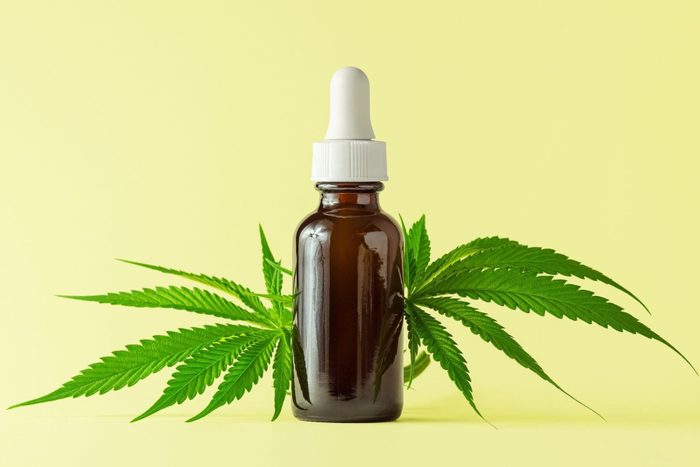Should You Use Hemp Oil? What Experts Want You to Know

Most CBD oil products these days come from hemp. This is what you need to know about hemp oil and its potential health benefits.
Hemp is a versatile plant. Parts of it, like the seeds, meet nutritional needs and find their way into our breakfasts, lunches, or dinners. But hemp is also found in products ranging from clothing, handbags, paper, carpeting, soaps and shampoos, and other goods. People have used hemp this way for centuries, but over the past several years, it’s seen a resurgence.
Hemp oil typically refers to specific products containing CBD (cannabidiol), and it plays an outsize role in the exploding CBD market. Sales of CBD consumer products derived from hemp were around $1.2 billion in 2019, according to market researchers at Nielsen. CBD oils are a fast-growing part of that market, and most CBD oils that you find in North America are extracted from the hemp plant.
Here’s what you need to know about hemp oil vs. CBD oil, where hemp oil comes from, what it can be used for, and how to buy a quality product.
(Related: Hemp Hearts vs. Hemp Seeds: What’s the Difference?)
Hemp oil is not the same as hempseed oil
The distinction is important. The two oils are sourced from different parts of the plant and have different benefits. Hemp oil comes from the flowers and leaves of the plant. These days, its prime attraction is its CBD content, which purportedly carries various health benefits. Hempseed oil comes from the seed and has no CBD or THC. (THC is delta-9-tetrahydrocannabinol, the mind-altering component of marijuana; CBD does not make you high.) It’s a good source of polyunsaturated omega-3 and omega-6 fatty acids, proven to be good for your heart.
You can also find hemp seed in food supplements like hemp milk and hemp protein powder. And it’s used to make varnish, paint, and soap, among other products. Science also suggests it can benefit the quality of your skin, hair, and nails.
Hemp is not the same as marijuana
Although the hemp plant is a cousin of the marijuana plant, Cannabis sativa, they differ greatly in how much THC they contain and in various other ways. In fact, they are effectively now two separate strains.
“Hemp refers to a specific type of cannabis that has only 0.3 per cent THC [or less],” says Kevin Boehnke, a research investigator with the Chronic Pain and Fatigue Research Center at the University of Michigan Medical School in Ann Arbor. Marijuana contains more than 0.3 per cent THC.
(Related: What to Know About Canada’s Cannabis Legalization)
Different THC levels in hemp and marijuana
The difference in THC content is what distinguishes hemp from marijuana—anything containing more than 0.3 percent THC is considered marijuana. “From a legal standpoint, [hemp products, including hemp oil] are ‘descheduled,’ so that’s why you can go into a grocery store and buy them,” says Boehnke.
(Related: 8 Myths About CBD and Its Medicinal Benefits)
CBD affects the endocannabinoid system
Naturally occurring (endogenous) cannabinoids (such as CBD) play a role in the communication between neurons. Abnormal levels of these endogenous cannabinoids can play a role in health conditions. For instance, clinical studies have noted low levels in women with depression.
“Scientists recognize that diseases are related to a dysfunction in the endocannabinoid system,” explains Lee. “CBD has a potential effect for a wide range of diseases.” But that’s the theory. “It doesn’t mean if you buy something online all your health problems could potentially be helped,” he adds.
(Related: How CBD Helped One Woman With Anxiety and Sleep Problems)
The health benefits of CBD aren’t scientifically proven
High-quality CBD products may be able to alleviate symptoms, such as pain, insomnia, anxiety, and more, but the science behind these claims is still emerging, says Boehnke. In other words, we just don’t have that much strong, evidence-based research that hemp oil confers any health benefits. That’s not to say it doesn’t work, just that we don’t know yet.
Lab studies and animal studies (both of which are considered preliminary) hint that CBD may stifle inflammation, which could explain some of its other purported benefits. But, as Boehnke says, “that’s tough to translate into humans.”
(Related: Can Marijuana Treat the Symptoms of Crohn’s Disease?)
Anecdotal evidence for CBD oil
While there isn’t that much rigorous research, there are surveys in which people report having tried and benefited from products such as hemp oil, which contains CBD. Some of the top medical reasons people say they use CBD are for pain, anxiety, mood dysfunction, and sleep.
In one 2018 survey of more than 2,400 people using CBD, published in the journal Cannabis and Cannabinoid Research, 36 percent of respondents said that CBD treated their condition “very well by itself.”
An Arthritis Foundation survey of 2,600 people with arthritis reported that 79 percent were currently using CBD for arthritis, had used it, or considered using it. Almost one-third said they currently used a CBD product, including 63 percent who used it every day. And nearly two-thirds said they used CBD in liquid form, which would include oil.
(Related: Everything You Need to Know About CBD Oil for Anxiety)
Cannabis legislation and regulation
The Canadian Government oversees the production and distribution of cannabis, from which CBD is derived. Cannabis and its extracts can be legally sold and distributed in Canada from licensed processors, and must be labelled with cannabis excise stamps.




